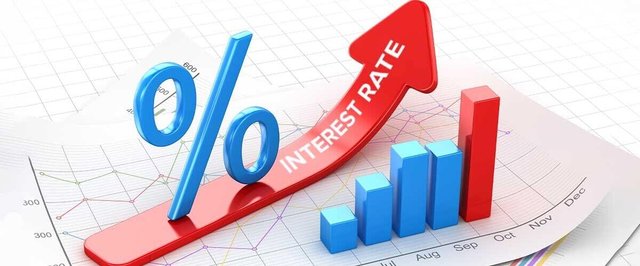2023 Banking Crisis: The governments' debt trap
Due to commercial bank lending shrinkage, central banks are losing influence over interest rates, increasing the possibility of debt deflation. Debt deflation will lock governments in debt, transfer credit creation from commercial banks to central banks, and worsen government funding issues like rising welfare expenses, falling tax collections, and rising borrowing costs. This is due to the failure of monetary policymakers to address growing prices and inflation and reliance on interest rate manipulation to moderate demand. Central bankers' groupthink and neglect of money and credit caused this catastrophe.
A study found that interest rates are not the only way to control inflation. Raising rates reduces pricing expectations but does not restrict credit expansion, which drives output and consumer demand. Commercial banks, not central banks, are raising interest rates in the global banking crisis caused by bank lending contraction. Banks are becoming more cautious about lending, which causes credit contraction. Commercial bankers are hesitant about lending, which raises interest rates and shrinks bank credit. Banks are lowering credit line maximums, examining derivative counterparty risks, and selling marketable bonds with maturities over a year to lower their balance sheet asset-to-equity ratio.
Since it ignores time, the state bureaucracy fails at monetary policy. Time and money connect earnings, consumption, savings, and investment in a market economy. Interest rates reflect time preference, which values possession today more than possession tomorrow. Current inflation suggests one-year deposit rates of 7% or 8%, notwithstanding the common central bank aim of 2% price inflation. As credit contracts, interest rates will rise, bond yields will rise, and debt markets will become more volatile.
Bank credit contraction may raise US government funding expenses and interrupt funding. If interest rates rise and bond yields fall, auction success may be uncertain. Recall the 1970s, when the Bank of England couldn't cover the UK's budget deficit. UK borrowing from the IMF and spending limitations reduced the fiscal deficit. In 2020, the US deficit-to-GDP ratio was roughly quadrupled that of the UK during its crisis. The Bank of England couldn't hide monetary inflation, but today's central banks and government statisticians can.
Market expectations and government positions diverge the longer reality is delayed. The Fed's situation today is eerily similar to the UK's mid-1970s. The US economy is expected to worsen, necessitating ongoing and increasing inflationary funding. Treasury coupons of 15% may be necessary if funding costs rise and disruptions occur.
Credit contraction, not central bank policy, raises interest rates. Monetarists and neo-Keynesians underestimate the effects of unemployed consumers not generating products and services, and their models have limited room for human response. Rising interest rates will increase government budget deficits and welfare cost indexation and index-linked bonds. Central banks will endeavour to avoid broad money supply statistics from falling.
High-debt-to-GDP countries will struggle to grow out of their debt as interest rates rise to owe to a credit contraction. The Bank for International Settlements reports high government debt ratios in industrialised countries, and respectable economists have emphasised that crossing a 90% debt-to-GDP proportion makes it impossible for a nation to grow out of debt.
The Fed's Bank Term Financing Programme, which allows banks to submit Treasury and agency securities at redemption value without a haircut for a one-year loan, now suppresses longer-term Treasury yields. This is just a postponement, and central bank credit will eventually replace commercial bank credit.
Disregarding currency, credit, and interest rate movements raises prices and traps governments in debt. If global bond prices fall, the Keynesian assumption that government control is better than free markets will be discredited. Highly indebted fiat currency economies will accelerate currency debasements and destroy public faith in their currencies as the market adjusts more violently than in the 1970s.
Source:
Alasdair Macleod, 2 April 2023, "Debt Deflation: "The Adjustment To Reality Is Likely More Violent Than Anything Seen In The '70s'", https://www.zerohedge.com/markets/debt-deflation-adjustment-reality-likely-more-violent-anything-seen-70s?utm_source=

My friend told me about your post. I liked it very much. I also want to share with you that app to loan money This app is also known for its wide network of lenders. With multiple lending institutions, it offers a wide range of options to users, ensuring competitive interest rates and flexible repayment terms. This diversity gives borrowers the opportunity to choose the lender best suited for their specific financial situation.